Note: the NB Media Co-op published this article in 2010.
Chief Hugh Akagi of the Passamaquoddy Nation knows the history of his people. The area now being used to operate the Point Lepreau nuclear generating station was used for summer encampment, hunting and fishing grounds by the Passamaquoddy Nation; his ancestors are buried there. Chief Akagi understands that every ounce of nuclear waste generated by this facility is still on site.
While attending a meeting of Canada’s Nuclear Waste Management Organization (NWMO) in Toronto a few years ago with representatives of other First Nations communities from across the country, he was appalled to hear that in its efforts to search out a place to store the waste, one of the options being considered was to bury it three miles underground in an abandoned mine shaft in Northern Ontario. Their idea was not to lock the door, assuming the next generation would certainly have the technology to deal with it in the future.
There seemed to be no conscience that such a solution would burden our children and their children’s children, with a problem our generation created and were willing to tolerate despite the consequences. Chief Akagi wondered, “Was this also the thinking that has left untold stockpiles of nuclear waste for our own generation; were we supposed to have developed a solution to which the best we could do was ‘Let’s leave it for the next generation!’?”
Chief Akagi was also surprised when told that any discussion on nuclear waste must not include any discussion of the industry itself. His question on this is “How is it possible that we were gathered to discuss the problem of nuclear waste when the main problem was the generation of a toxic substance we have no hope of destroying, which was not to be discussed?”
“How could First Nations Peoples be asked to participate in the poisoning of our youth and our planet when we revere her as our mother and believe we need to protect our children for seven generations or more? This whole concept is as foreign to our existence on Turtle Island as Indigenous Peoples, as was the first wave of Europeans who came ashore nearly 500 years ago.”
Chief Akagi continues, “How can we possibly allow ourselves to be convinced that there is a need for more nuclear energy and that we can avoid exacerbating the problem of nuclear waste stockpiles any more than we already have (though on this they may be right for if no solution is possible then adding to the problem is like adding to ‘infinity’).”
“Is not addiction to energy itself the problem and addressing this a better solution. Instead of sponsoring discussions with First Nations people about dealing with the problem of nuclear waste, should we not be discussing how to put an end to the ‘problem’ by including us in any discussion of any future use of Nuclear energy especially within our territory?”
“As I witness the process of spinning nuclear energy as ‘clean’ energy, and nuclear waste as ‘not really a problem’, I struggle with reality when I hear that even nuclear industry analysts are saying that CANDU reactors such as the one at Point Lepreau are not worth further investment. With each extension for the refurbishment I can only imagine that it is only money which is keeping this dinosaur alive beyond its time and the expression ‘good money after bad’ comes to mind.”
Chief Akagi of is working with a coalition of groups across Canada who want to see Point Lepreau shut down for good, including the International Institute of Concern for Public Health, Conservation Council of New Brunswick, Concerned Citizens of Saint John, People Against Nuclear Energy, Fundy Baykeeper, Friends of the Musquash, Greenpeace Canada and the Atlantic Sierra Club.

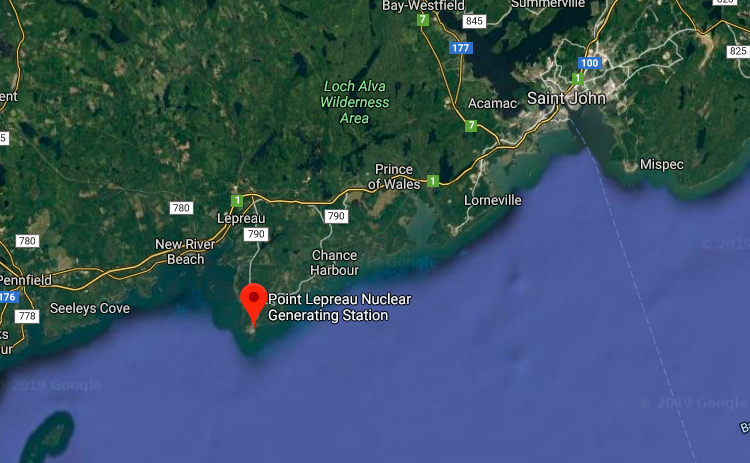
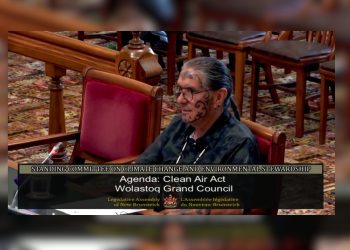
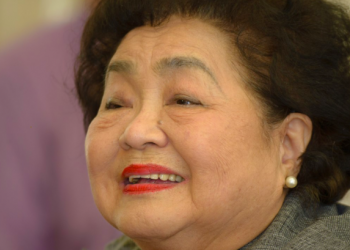
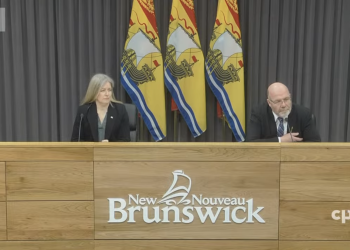
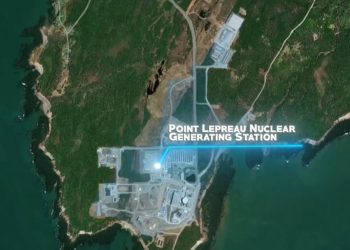


![‘Continuum of genocide’: Pentagon funding of Sisson mine provokes renewed opposition from Wolastoq Elders [video]](https://nbmediacoop.org/wp-content/uploads/2025/07/SissonMine-2-120x86.jpg)

